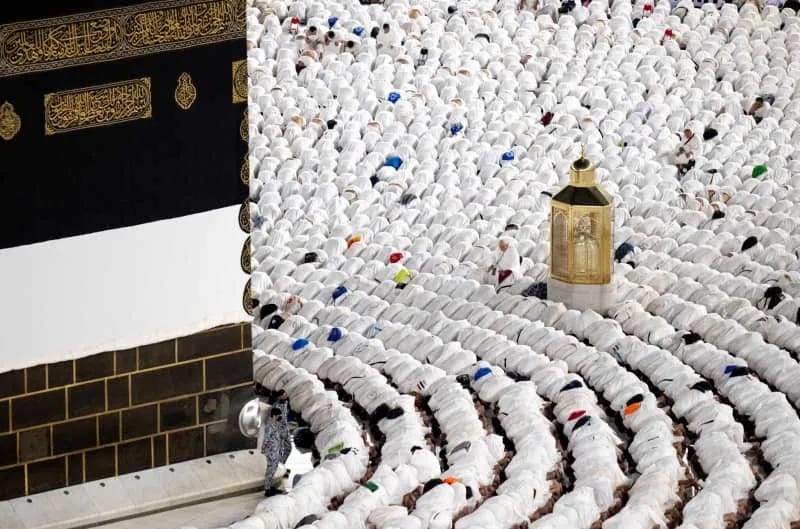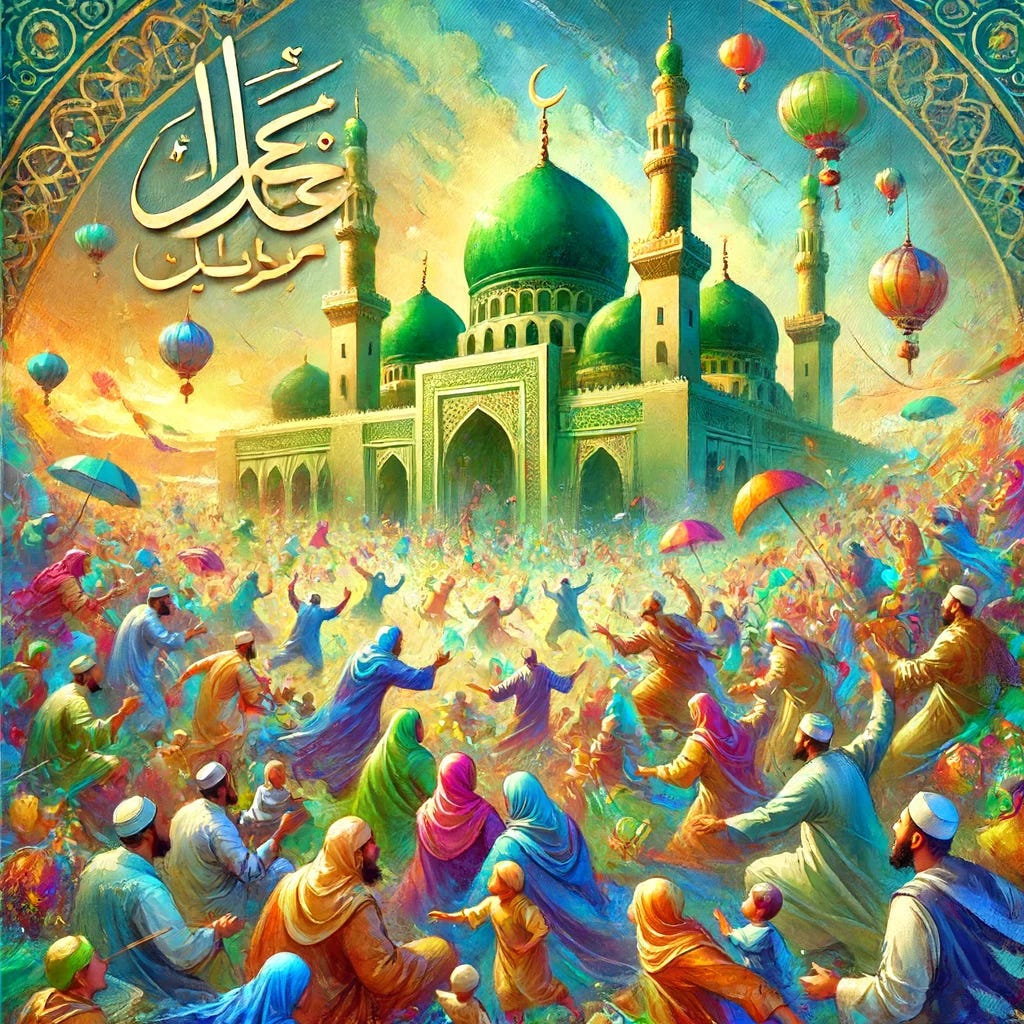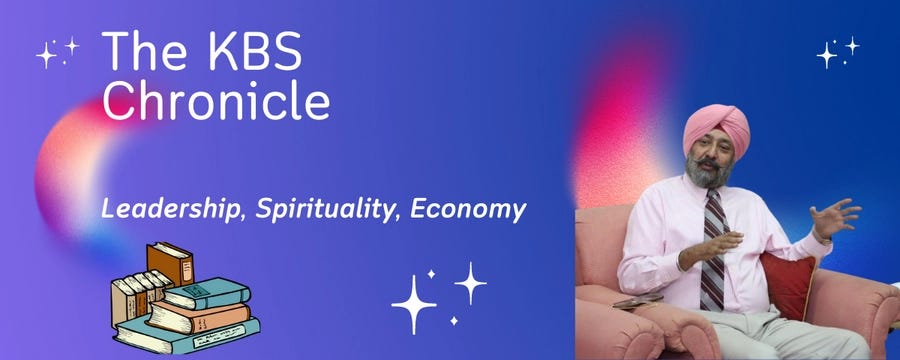Eid al-Adha: An Islamic Festival Commemorating Sacrifice, Marking the End of Annual Hajj
Also known as Bakr-Eid or Eid-ul-Zuha, Eid al-Adha is celebrated with great zeal and fervour by Muslims in India and globally, marking the end of the annual Hajj pilgrimage at the Kaaba in Mecca.
Eid al-Adha: Commemoration of Sacrifice
Heartiest felicitations to our Muslim brethren on the auspicious occasion of Eid al-Adha. In the rich tapestry of Indian festivals, Eid al-Adha, also known as Bakr-Eid or Eid-ul-Zuha, stands as a significant Islamic event that unites diverse communities across Islamic nations worldwide and in India, home to nearly 200 million Muslims. This festival commemorates the profound act of sacrifice (Qurbani) and emphasizes unity, faith, and shared values, resonating across various cultural traditions, and marks the end of the annual Hajj pilgrimage at the Kaaba in Mecca. In India, Hindus and Sikhs often join in sharing the joys of this celebration with their Muslim friends, highlighting the spirit of communal harmony and mutual respect.
Origin and Significance
Eid al-Adha, also known as Bakr-Eid or Eid-ul-Zuha, is one of the most important Islamic festivals. It commemorates Prophet Ibrahim's (Abraham's) willingness to sacrifice his son Ismail (Ishmael) as an act of obedience to Allah's command. Allah's intervention, providing a ram for the sacrifice instead, underscores themes of faith, sacrifice, and divine mercy. These themes resonate across various religions and cultures, making Eid al-Adha a celebration of shared human values.
Historical Roots of Eid al-Adha
The origins of Eid al-Adha are deeply embedded in the ancient story of Prophet Ibrahim's willingness to sacrifice his son Ismail, which occurred long before the time of Prophet Muhammad (PBUH).
The Legacy of Prophet Ibrahim
Prophet Ibrahim, known as Abraham in Judaism and Christianity, is a pivotal figure in Islamic tradition, revered as one of the earliest prophets. He lived several centuries before Prophet Muhammad (PBUH), and his story is chronicled in the Holy Quran, highlighting his unwavering faith and obedience to Allah. The Quran recounts the profound moment when Ibrahim, acting on divine command, prepared to sacrifice his beloved son Ismail. However, Allah intervened, substituting a ram for the boy, thus sparing Ismail and rewarding Ibrahim's devotion.
Commemoration in Eid al-Adha
Eid al-Adha, also known as the Festival of Sacrifice, commemorates this pivotal event from Ibrahim's life. This festival has been a significant observance for Muslims since the time of Prophet Muhammad (PBUH), who affirmed its roots by stating, "It is a tradition that has come down to us from Abraham." The act of sacrifice, central to the celebration of Eid al-Adha, is a reenactment of Ibrahim's ultimate test of faith, underscoring the themes of devotion and submission to Allah's will.
The Hajj Pilgrimage: A Spiritual Journey Culminating in Eid al-Adha
Muslims from around the world have commenced the annual Hajj pilgrimage in Saudi Arabia, with authorities anticipating the arrival of 2 million pilgrims this year. Despite the sweltering heat, which is expected to reach 43 degrees Celsius, pilgrims remain undeterred as they engage in this sacred journey. The pilgrimage begins with prayers in front of the Kaaba, the stone cube-shaped holy building inside the Grand Mosque in Mecca. After circling the Kaaba, pilgrims proceed to the Mina valley, where they spend the night in a vast tent city. On the second day, they travel to Mount Arafat, about 20 kilometers east of Mecca, where they remain until sunset in what is considered the pinnacle of the Hajj pilgrimage.
The Hajj, one of the five pillars of Islam, is a mandatory duty for all Muslims who are physically and financially capable. This pilgrimage symbolizes religious unity, equality, and the pursuit of spiritual renewal, with men wearing seamless white clothes and women donning loose garments as they perform the same rituals. The Hajj takes place from the eighth to the 12th day of Dhu al-Hijjah, the final month of the Islamic lunar calendar, and culminates in the celebration of Eid al-Adha. This festival not only marks the end of the Hajj pilgrimage but also commemorates the willingness of Prophet Ibrahim to sacrifice his son in obedience to Allah, further emphasizing the themes of sacrifice, faith, and unity within the Muslim community.

Eid al-Adha: A Unified Celebration Across Sunni and Shia Islam
Eid al-Adha is a major Islamic holiday celebrated by both Sunni and Shia Muslims worldwide. Despite some variations in the exact dates of celebration between the two sects, the core essence and practices of the festival remain unified.
Differences in Celebration Dates
In certain regions, such as Iraq, Sunni and Shia religious authorities have occasionally announced different dates for Eid al-Adha. Typically, Sunnis celebrate the holiday a day before Shias. This discrepancy is often attributed to political reasons rather than theological disagreements. Similarly, in other countries, the exact dates can vary by a day between Sunni and Shia communities, depending on the sighting of the new moon that marks the start of the Islamic lunar month of Dhu al-Hijjah.
Shared Festivities and Rituals
Despite these minor differences in timing, the core festivities and rituals of Eid al-Adha are common to both Sunni and Shia Muslims. These include special prayers, the sacrificial offering of an animal (such as a goat or sheep), acts of charity, social gatherings, and the exchange of gifts. The holiday commemorates Prophet Ibrahim's willingness to sacrifice his son as an act of obedience to God, a narrative that holds deep significance for all Muslims, regardless of sect.
Transcending Sectarian Boundaries
The religious and cultural significance of Eid al-Adha transcends sectarian boundaries. It is a time when Muslims worldwide, whether Sunni or Shia, come together to honour a shared heritage of faith and devotion. The festival fosters a sense of unity and common purpose, highlighting the shared values that underpin the diverse traditions within Islam.
When Celebrated
Eid al-Adha is observed on the 10th day of Dhu al-Hijjah, the twelfth and final month of the Islamic lunar calendar. This timing aligns with the end of the Hajj pilgrimage to Mecca, a significant event in Islam. As the Islamic calendar is lunar, the exact date of the festival varies each year in the Gregorian calendar. In 2024, Eid al-Adha is expected to be celebrated on June 17 in India, while some countries might observe it on June 16.
How Celebrated
Eid al-Adha begins with special prayers held in mosques, community centres, and homes. People dress in their finest clothes, symbolising respect and joy. Following the prayers, families and friends gather to exchange gifts and enjoy festive meals, fostering a spirit of togetherness and celebration.
A central element of the festival is the symbolic sacrifice of an animal, typically a goat, sheep, or camel. This act, known as Qurbani, honours Prophet Ibrahim's devotion and obedience to Allah. The meat from the sacrificed animal is divided into three parts: one for the family, one for friends and relatives, and one for the poor and needy. This distribution embodies the values of sharing and caring for others, particularly the less fortunate.
Significance of Animal Sacrifice
The act of sacrificing a goat during Eid al-Adha holds deep symbolic meaning. Goats were historically valued possessions, especially in the Arabian Desert, and their sacrifice represents the willingness to give up something precious for a higher purpose. This practice underscores themes of devotion, submission to divine will, and the importance of generosity and compassion towards others.
Inclusive Celebrations
Eid al-Adha is essentially a Muslim festival, deeply rooted in Islamic traditions. However, in India, it often transcends religious boundaries, with Hindus and Sikhs joining in solidarity and sharing in the joy of the celebration. Just as Muslims participate in Diwali, Hindus and Sikhs often enjoy the succulent kebabs sent by their Muslim friends during Eid al-Adha. This mutual participation fosters a spirit of communal harmony and mutual respect among different communities.
Eid al-Adha 2024 Date in India
In 2024, Eid al-Adha will be celebrated on June 17 in India, coinciding with the global observance of the festival. This date is subject to the sighting of the moon, a tradition that adds to the anticipation and communal aspect of the festival. Countries like Saudi Arabia may observe the festival on June 16, reflecting regional differences in lunar sightings.
Summing Up
Eid al-Adha is more than a celebration; it is a testament to the enduring values of faith, sacrifice, and compassion that transcend cultural and religious boundaries. By bringing together diverse communities, this festival fosters a sense of unity and shared purpose, reminding us of the common threads that bind us all. In India, Hindus and Sikhs often join in sharing the joys of this celebration with their Muslim friends, just as Muslims partake in Diwali celebrations. Whether in India or the Indian diaspora abroad, Eid al-Adha is a time for reflection, celebration, and the reaffirmation of our commitment to the values that make us human and promote communal harmony.
If you believe this article would interest someone you know, please feel free to share it anonymously (for us), using any platform that you prefer.







